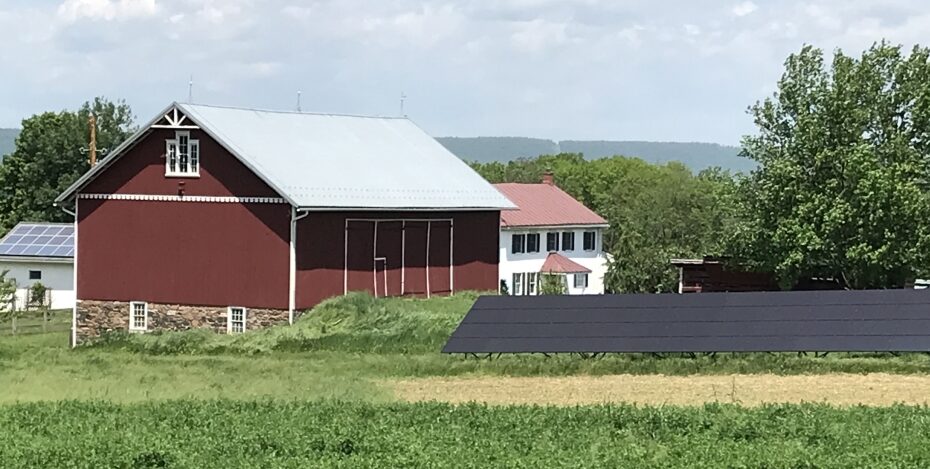Solar energy use on both the farm and in small businesses is beginning to play a larger role in the growing interest in clean, renewable energy nationwide, and in particular the state of Pennsylvania. Below are some statistics about the solar industry in Pennsylvania from the Solar Energy Industries Association (SEIA) showing its growth, ranking, and investment on a national scale.
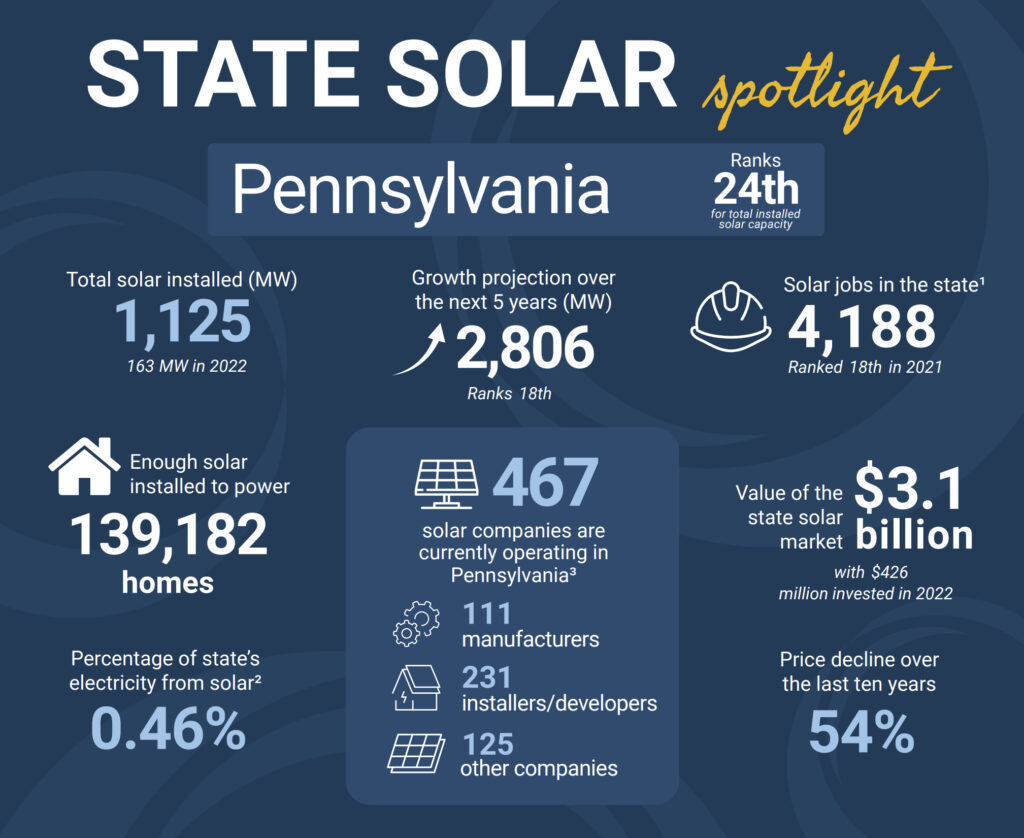
If you are a small business and farm considering the installation of solar panels, you probably have several areas of concern about the process. A professional solar installation company can help you navigate through your questions, concerns, and issues using their expertise and experience in your state and local area. There are a number of ways that Pennsylvania is supporting solar for businesses in the state. Below are some of the most frequently raised issues:
Cost and Financing
The initial cost of installing solar panels can be substantial. Businesses often want to know about financing options, grants, tax incentives, and any other opportunities that can help offset the initial costs. They are also interested in understanding the return on investment (ROI) and the payback period. The Database of State Incentives for Renewable Energy (DSIRE) provides information on incentives and policies that support renewable energy and energy efficiency throughout the country, specifically for Pennsylvania.
Energy Production and Savings
Businesses are keen to understand how much energy the solar panels will produce and how this will translate into savings on their energy bills. They also want to know if they can sell excess energy back to the grid and how that process works. Pennsylvania uses the Net Metering system which allows you to sell excess solar electricity back to the utility at the same price at which you would buy it.
Installation and Maintenance
Concerns about the installation process, including the time it will take and the disruption it may cause, are common. Businesses also want to know about the maintenance requirements of the panels and the associated costs. They will want to know what is required to properly maintain and clean their panels and keep their system at maximum efficiency.
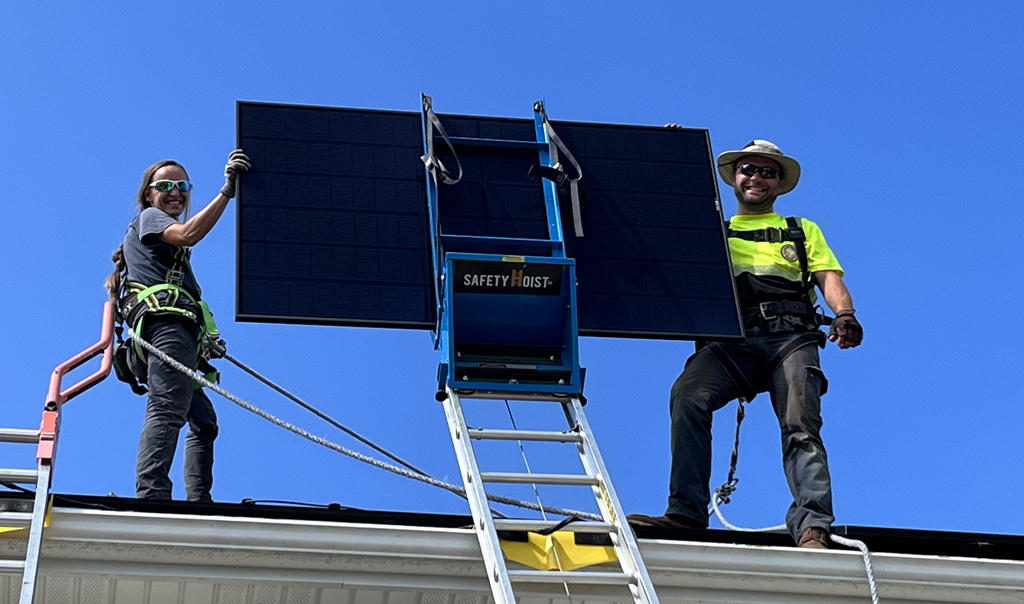
Durability and Lifespan
Questions about the lifespan of solar panels and their durability, especially in adverse weather conditions, are often raised. Businesses want to ensure that their investment will last for hopefully decades of use. With climate change causing more severe weather everywhere, businesses and farms will want to know how solar panels hold up in everything from winter snows to summer dust storms or high winds.
Space Requirements
Particularly for farms, the amount of space required for solar panels is a significant concern. They need to balance the space used for solar panels with the space needed for their farming operations. Solar panels can be installed on the roof of a building (roof mount) or on metal framing or posts on the ground (ground mount). There are pros and cons to each type, such as cost, performance, and local permit requirements.
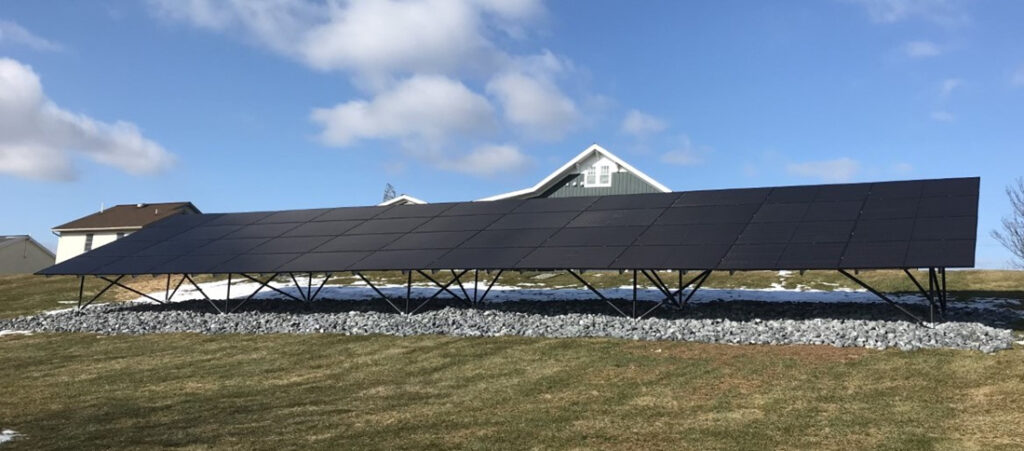
Environmental Impact
While solar panels are generally seen as environmentally friendly, businesses often want to understand the full environmental impact, including the manufacturing and disposal process of the panels.
Regulatory Compliance
Depending on the location, there may be local regulations or zoning laws that affect the installation of solar panels. Businesses need to understand these regulations and ensure they are in compliance. Learn more from the Pennsylvania Public Utilities Commission (PUC).
Technical Support
Businesses want to know what kind of technical support is available, both during the installation process and afterward. Hiring a professional, registered solar contractor will oftentimes include support and maintenance as an additional service after installation, as well as a warranty for their work including the panels and equipment used for the job.
Compatibility with Existing Infrastructure
Businesses need to understand how solar panels will integrate with their existing infrastructure, including their current energy systems and any potential upgrades or changes that may be needed. Always make sure you do an energy audit of your existing property while including any future expansion plans that will impact your additional energy needs going forward.
Reliability
Businesses want assurance that solar panels will provide a reliable source of energy. They also want to know what happens in the event of a failure or during periods of low sunlight. There is a rise in businesses demanding solar systems that are paired with battery storage. This combination can be a reliable backup during periods of severe weather and other blackouts as well as reduce utility bills and generate some additional revenues if enough extra energy is produced. However, the addition of a battery storage system to an installation job does add to the cost, timeline, and complexity of completing it. See the simplified diagram below from Clean Energy Group.
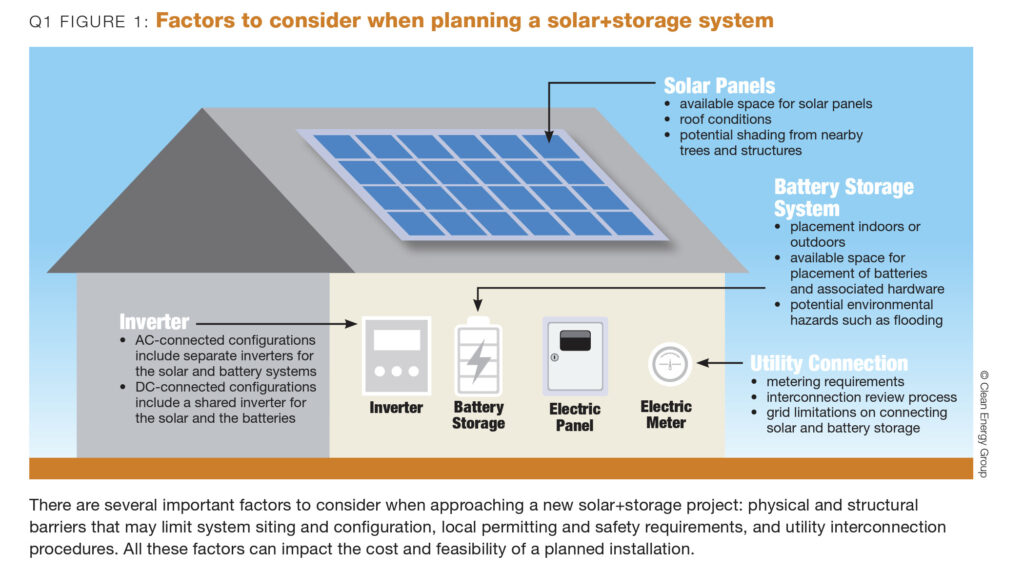
While these are general concerns, the specific details will vary depending upon the individual circumstances of each small business or farm and which state they operate in. It’s important to consult with a professional solar installation company to get accurate and detailed information tailored to their specific situation. This will depend upon the state and your location, the size and type of your property, and local regulations and financial incentives. The solar installation company will provide a detailed assessment and proposal geared specifically to your farm or small business, taking into account all of the aforementioned concerns.
